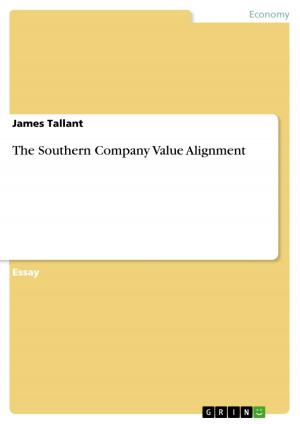Symbolism in William Shakespeare's As You Like It
Fiction & Literature, Literary Theory & Criticism, British| Author: | Benjamin Foitzik | ISBN: | 9783638180955 |
| Publisher: | GRIN Publishing | Publication: | April 5, 2003 |
| Imprint: | GRIN Publishing | Language: | English |
| Author: | Benjamin Foitzik |
| ISBN: | 9783638180955 |
| Publisher: | GRIN Publishing |
| Publication: | April 5, 2003 |
| Imprint: | GRIN Publishing |
| Language: | English |
Seminar paper from the year 2000 in the subject English Language and Literature Studies - Literature, grade: 2+ (B), Technical University of Braunschweig (English Seminar), course: Shakespeare's Comedies, 6 entries in the bibliography, language: English, abstract: This is a paper on symbolism in Shakespeare's As You Like It. I will especially emphasise the symbolic meaning or rather 'allusion' of The Forest Of Arden, and intend to go much further than to maintain that 'The Forest Of Arden is an unreal place because there are and were no palm trees in England'. This is of course out of question and totally insignificant to the eventual aim of this paper. At first, I will examine the different representations of court and forest in the play, which is supposed to support the assertion that the courtiers have to leave the wicked court in order to find again what has gone lost there: love and human warmth. Thus, I want to show that the forest has to be seen as a feeling, a spirit of love and self-knowledge. Moreover, I am going to put forward concrete symbols in the play and their meaning in the context and with regard to the understanding of The Forest Of Arden. There is a wide range of different symbols, natural and worldly symbols, and of course symbols that are connected with love, which all contribute to the final message of the play, that is, that there is no clear message to it, which I hope I will be able to explain in this paper. On the whole, the question that has to be answered looks simple but is to my mind very intricate and distinct since it is far too complex in its deeper meaning: 'What is The Forest Of Arden?' I want to impart the idea that The Forest is not meant as a symbol of something, but rather as a feeling, an attitude towards life. Thus, it is neither symbolic of love nor forgiveness nor renewal, but rather impersonates those qualities. It is not symbol but representative and epitome of, which is much more intensive. However difficult an answer to the question above seems to be, answering it is unexpectedly easy, and this for one simple reason: everyone has to decide for him- or herself. I can only give suggestions, but what Arden means to oneself differs from person to person. Therefore, The Forest Of Arden is As You Like It.
Seminar paper from the year 2000 in the subject English Language and Literature Studies - Literature, grade: 2+ (B), Technical University of Braunschweig (English Seminar), course: Shakespeare's Comedies, 6 entries in the bibliography, language: English, abstract: This is a paper on symbolism in Shakespeare's As You Like It. I will especially emphasise the symbolic meaning or rather 'allusion' of The Forest Of Arden, and intend to go much further than to maintain that 'The Forest Of Arden is an unreal place because there are and were no palm trees in England'. This is of course out of question and totally insignificant to the eventual aim of this paper. At first, I will examine the different representations of court and forest in the play, which is supposed to support the assertion that the courtiers have to leave the wicked court in order to find again what has gone lost there: love and human warmth. Thus, I want to show that the forest has to be seen as a feeling, a spirit of love and self-knowledge. Moreover, I am going to put forward concrete symbols in the play and their meaning in the context and with regard to the understanding of The Forest Of Arden. There is a wide range of different symbols, natural and worldly symbols, and of course symbols that are connected with love, which all contribute to the final message of the play, that is, that there is no clear message to it, which I hope I will be able to explain in this paper. On the whole, the question that has to be answered looks simple but is to my mind very intricate and distinct since it is far too complex in its deeper meaning: 'What is The Forest Of Arden?' I want to impart the idea that The Forest is not meant as a symbol of something, but rather as a feeling, an attitude towards life. Thus, it is neither symbolic of love nor forgiveness nor renewal, but rather impersonates those qualities. It is not symbol but representative and epitome of, which is much more intensive. However difficult an answer to the question above seems to be, answering it is unexpectedly easy, and this for one simple reason: everyone has to decide for him- or herself. I can only give suggestions, but what Arden means to oneself differs from person to person. Therefore, The Forest Of Arden is As You Like It.















